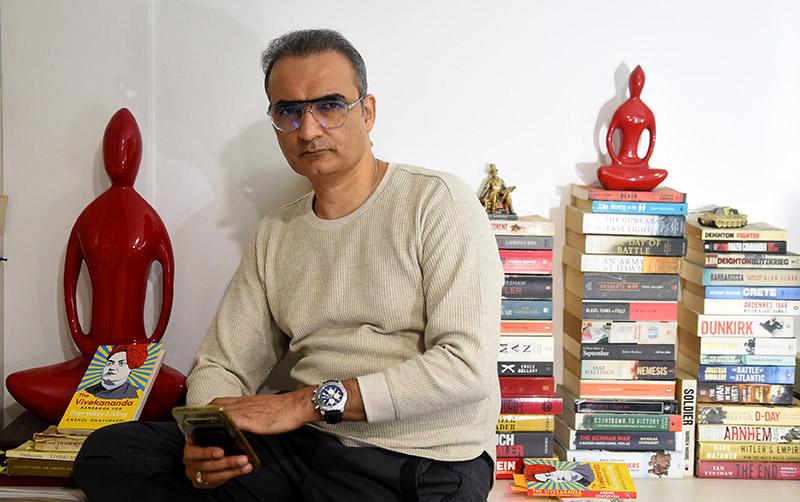 Image
Image
My book on Vivekananda a summary of how he helped me to deal with questions: Journalist-author Anshul Chaturvedi
Journalist-author Anshul Chaturvedi's book on Swami Vivekananda, titled The Vivekananda Handbook for Everyday Living, was officially launched on Jun 28 this year. Days after it was launched, Chaturvedi spoke about the book in a candid conversation at The Write Circle Special, organised by Prabha Khaitan Foundation and presented by Shree Cement. IBNS correspondent Souvik Ghosh brings some excerpts
.jpg)
What is the reason behind writing this book?
I didn't write this as a gyan (pontification) . The idea is that the book should be easy to comprehend and implement – not be read as an intimidating religious book primarily about the greatness of the person concerned. The reason the book hasn't come along that way is also because of the same philosophy which this individual (Swami Vivekananda) planted into my head very early when I was younger and more combative.
So this is your account of how you perceive Vivekananda.
I kept the book to what I have practically experienced – how I saw him through my eyes. That is it. In the last 100 years, many scholars have written about him. So I did not need to reiterate his greatness. I am not qualified to comment on his personality – his stature and intellect are immense. I am qualified to comment on how he has shaped my thinking.
.jpg)
Top Headlines
-
Literary
Culturist Sundeep Bhutoria unveils anthology When Gods Don't Matter at Jaipur LitFest 2026
January 17, 2026
-
Literary
Sona College of Technology hosts Think Salem 2025: To spur startup opportunity from Tier-2 Cities
December 23, 2025
-
Literary
A Defiant Voice Remembered: Jyotsna Mohan at The Write Circle, Dubai
September 27, 2025
-
Literary
Feminist pioneer Abala Bose was both a subscriber and critique of colonial ideas: Author Saptarshi Mallick
August 26, 2025
-
Literary
The Sona Story: The Textile to Tech Journey of Chettiar Industrialist C. Valliappa
April 22, 2025
-
Literary
The Sona Story celebrates life, legacy of C. Valliappa
April 05, 2025
-
Literary
Acclaimed Author Soma Bose continues to inspire with her powerful storytelling
March 07, 2025
-
Literary
Terrorists behind Nagrota attack had a jihadi sentiment: 'Nagrota Under Siege' author Bhaavna Arora
February 26, 2025
-
Literary
I am a lifelong Felu-da fan, says Arindam Basu unveiling truth-seeker Prithviraj's intriguing world in 'The Calcutta Covenant'
February 18, 2025
-
Literary
Women decide Indian politics now: Veteran journalist Rajdeep Sardesai at Kitaab talk in Kolkata
January 12, 2025
